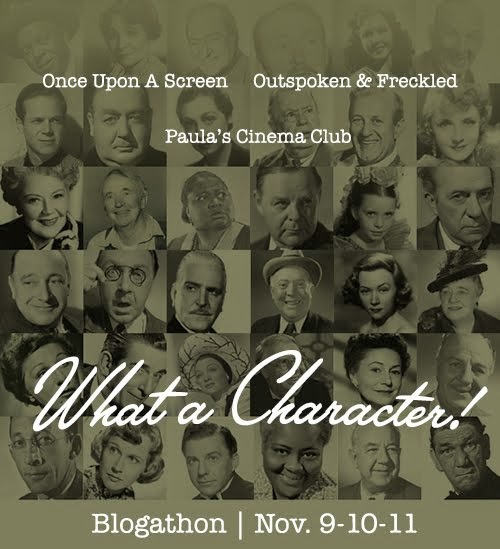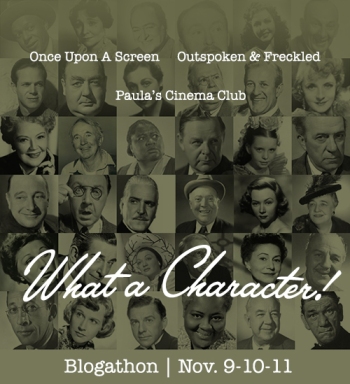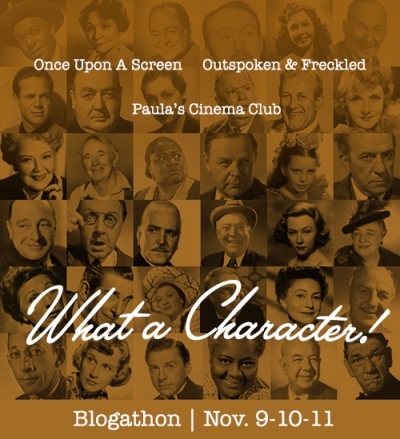... Hattie McDaniel
Hattie McDaniel was a character actor whose presence on the silver screen is one we shall never forget. In addition to her memorable performances on screen, her impact beyond the celluloid made this actress into a cinematic legend and a true pioneer in the African-American community.
Born on June 10, 1895, in Wichita, Kansas, she was one of 13 children and the daughter of former slaves. Her parents introduced her to music and entertainment early on- her father was a Baptist preacher yet also sang and played the banjo in minstrel shows and her mother was a gospel singer. The family moved to Denver in 1901. By high school, Hattie's talents were already starting to shine in school and church; thus began her early career as a singer and a dancer. She often joined her father's minstrel act and toured with other vaudevillian troupes. In 1925, she became one of the first African-American women of radio- and the very first black female voice to sing on the radio.
In the early 30's when she moved to L.A., she was able to garner small roles on the radio through her brother, Sam and sister Etta (already working in radio/film)- which turned into bit roles as extras in films. In order to get by, she took on odd jobs in domestic work while pursuing radio and film work. But in 1934, she landed her first big break on-screen role as a maid in John Ford's JUDGE PRIEST.
From there, her roles came more frequent with a more assertive personality with each subsequent role... but always as the maid or "mammy" character. She appeared in close to a hundred roles as an actress and usually in that similar character as the maid/mammy who is loyal to her employer yet comfortable enough to express what's on her mind, even in defiance with stern mannerisms. Her outfits would often reflect the racial stereotype as the "mammy." McDaniel's performances stood out, despite as racially stereotypical and stagnant as they may be. It was her quality of her craft that made these roles memorable. These stereotypical characters led to her crowning achievement and most recognizable role, as "Mammy" in Victor Fleming's GONE WITH THE WIND (1939). Her acceptance speech in winning the Academy award for Best Supporting Actress; the very first Oscar ever won by an African-American:
"Academy of Motion Picture Arts and Sciences, fellow members of the motion picture industry and honored guests: This is one of the happiest moments of my life, and I want to thank each one of you who had a part in selecting me for one of their awards, for your kindness. It has made me feel very, very humble; and I shall always hold it as a beacon for anything that I may be able to do in the future. I sincerely hope I shall always be a credit to my race and to the motion picture industry. My heart is too full to tell you just how I feel, and may I say thank you and God bless you."
The road to earn this coveted award from the Academy, along with the rest of the gains in her life, was not an easy one traveled. Her accomplishments often came at a great price and were surrounded by controversy. As shocking as it may be to comprehend in modern society, none of the black actors were allowed to attend the premiere screening of GONE WITH THE WIND (1939) which took place in segregated Atlanta, GA. In fact, For the premiere night's cotillion ball, Martin Luther King Sr. was invited to attend as a influential minister but was being encouraged to boycott the premiere's events by fellow civil rights leaders. MLK Sr. attended anyway, along with his soon-to-be high-profile son.
During World War II, McDaniel supported American war efforts by entertaining the troops and promoting war bonds all while continuing to play these same roles. But soon the frequency of offers slowed down dramatically. Post WWII, the progress of civil rights movement had little tolerance for black actors perpetuating demeaning racial stereotypes. McDaniel, as a major symbol of that role countless times over was openly scorned by the NAACP. She disagreed. She defended herself stating that she found success; and in her own way made changes for future generations of African-Americans in Hollywood. She was also known for offering black actors to stay at her home if they couldn't find lodging while residing in LA to help build their careers. And as she famously said, "I'd rather play a maid than be one...Why should I complain about making $700 a week playing a maid? If I didn't, I'd be making $7 a week being one."
As Hollywood became more interested in a new generation of African American actors like Lena Horne and Sidney Poitier that better reflected a transition into an era of civil rights, movie roles were no longer being offered to Hattie McDaniel. She chose to return to radio instead. "The Belulah Show" was a popular starring role for her. She played a maid but with NAACP approval this time, from 1947 to 1951. The success of this show resulted in a tv version but McDaniel only played this role once on the small screen because she suffered a heart attack. Although she did recover, she soon discovered she had terminal breast cancer. She died on October 26, 1952.
While another 'first' for McDaniel was to be the first African-American to be buried at Rosedale Cemetery in Los Angeles, it was actually her wish to be buried at the Hollywood Forever Cemetery. A more than reasonable request by such an Oscar-winning pioneer in Hollywood; but she was denied due to racism AGAIN. Nearly 50 years later, a monument was finally placed in her honor at Hollywood Forever Cemetery. Carved in granite, the perfect response to her Oscar acceptance speech and loving tribute are forever immortalized... "you are a credit to your craft, to your race and to your family." Posthumously, she was also awarded 2 stars on Hollywood's Walk-Of-Fame: one for radio and one for film.
When I think of Hattie McDaniel, my earliest memory of being introduced to her was via the "Tom and Jerry" cartoons with her recurrent "mammy" role illustrated in animated form; often knee-down view only as she would holler "Thomas!" in her loud, scolding way and frequently with broom in hand. Yes, that was Hattie McDaniel too. As I grew older, I was surprised how this same person could play this similar character in SO many different films. As I watch classic films as an adult, the 'black-face' skits are INCREDIBLY uncomfortable and alarming to watch. [How ON EARTH did anyone think this was not insulting?!] But as stereotypically negative as the 'mammy' and other servile roles were for any and all African Americans to portray, it's somehow different when watching Hattie. Despite the demeaning roles and enormous challenges forced upon her, she had such integrity in her skilled performances that always shone through. She was memorable.
History proves that changing intolerance takes hard-work, time and persistence. Sadly, it's often not a quick fix. Hattie McDaniel proved that she was a trailblazer for her time. A woman of many 'firsts.' It takes a true character to be such a pioneer!
-This post was written as part of the FABULOUS and FUN 'WHAT A CHARACTER! Blogathon' as hosted by Aurora of ONCE UPON A SCREEN, Paula of PAULA'S CINEMA CLUB and lil' ole me... Kellee of OUTSPOKEN & FRECKLED. Be sure to catch up on all the blogger entries for their talented write-ups!





